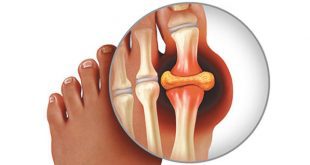By Dr. Noël Crosby, Au.D.


Dr. Lin’s study found that annual rates of cognitive decline were 41 percent greater in older adults with hearing problems than in those without. This finding was based on results from the Modified Mini-Mental State Exam. A five-point decline on that test is considered a “clinically significant” indicator of a change in cognition. Results from the Digit Symbol Substitution Test showed the same downward trend, though not quite as steep: older people with hearing loss recorded a yearly rate of cognitive decline 32 percent greater on it than those with intact hearing. Using this information, Dr. Lin found that elderly people with hearing problems experienced a five-point decline on the exam in 7.7 years, compared with 10.9 years for those with normal hearing. In both cases, the results showed an association or link only; there was no proof of causality.
One consequence that may help explain Dr. Lin’s findings is social isolation. When people have a hard time distinguishing what someone is saying to them, as is common with many older adults, they often stop attending dinners or parties, concerts or classes, or going to family events. Over time, this social withdrawal can become a self-fulfilling prophecy, leading to the loss of meaningful relationships and activities that keep older people feeling engaged with others. Another potential explanation for Dr. Lin’s findings lies in a concept known as “cognitive load”. This concept assumes that “we only have a finite amount of cognitive resources, and if we expend a lot of those resources processing sensory input coming in as sound it’s going to be processed more slowly by those who have hearing loss, and understood and remembered less well”. In other words, when your brain has to work hard to hear and identify meaningful speech from a jumble of sounds, you will have less mental energy for higher cognitive processing.
For older adults the bottom line is “pay attention to hearing loss,” Most people seek help for hearing loss 10 to 20 years after they first notice a problem, because there’s a stigma about hearing loss and people really don’t want to wear a hearing aid. This means that years of struggling with the consequences of hearing impairment without help that can make a difference, can increase the risk for increased cognitive decline, dementia and alzheimers.
PROFESSIONAL BIO
Dr. Noël Crosby, Au.D., owner and audiologist at Advanced Hearing Solutions in Englewood, FL is a licensed professional whose 26 year career has been devoted to helping people of all ages hear and understand more clearly. Dr. Crosby received her BS and MS degrees from FSU and her Doctorate in Audiology from UF. Her credibility as an authority grew during her tenure as the Director of Audiology at the Silverstein Institute in Sarasota, FL from 1991-1998. Today, in addition to managing a successful audiology practice, Dr. Crosby is involved in creating hearing loss awareness through her jewelry and accessory company AuDBling.com. She has served and is serving on various professional boards and committees and was president of the Florida Academy of Audiology in 2000 and 2010. She has been married to Michael for 23 years and has one daughter.
For more information contact Noël’s office at 941-474-8393 or you can visit her website at www.advancedhearingsolutions.net.
 Southwest Florida's Health and Wellness Magazine Health and Wellness Articles
Southwest Florida's Health and Wellness Magazine Health and Wellness Articles

